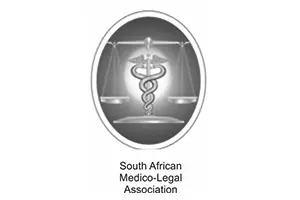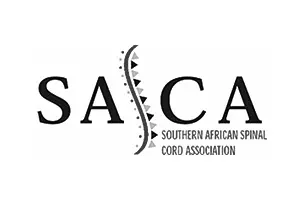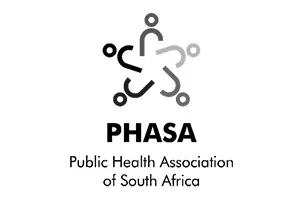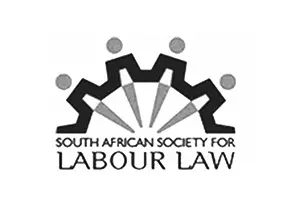
Psychological damages are complex to claim when losing a child
Claims for emotional or psychological damages when losing a child in a personal injury case can be difficult to prove in South African courts. In the case of Mbhele v MEC for Health for the Gauteng Province (355/2015) [2016] ZASCA 166, the appellant (i.e. mother), Ms Delisile Mbhele, instituted action against the MEC of Health for the Gauteng Provincial Government in her official capacity as the employer of the medical staff at Chris Hani Baragwanath Hospital (CHB). She sued personally, and in her capacity as a parent of her stillborn baby who was delivered at CHB on 18 August 2006. She claimed that negligence on the part of the medical staff resulted in their baby being ‘stillborn’; and that as a result of such negligence they suffered psychological damages.
The emotional distress suffered by the appellant after the birth of her baby was outlined in the statement of facts and the court proceeded to explain how general damages are determined as follows: “[Point 13] In order to determine general damages, courts acting in arbitrio iudicis (i.e. upon the discretion of the judge) and generally tending towards conservatism have regard to considerations such as awards in comparable cases, inflationary changes in the value of money, and problems arising from collateral benefits. Importantly, in making an award, a court is not bound by one or other method of calculating general damages. It has wide discretion. As this court frequently pointed out, each case must be determined on its own unique facts.”![]()
The court further referred to other cases where damages were awarded for the loss of a child as follows:
![]()
- “[14] In Majiet v Santam Limited [1997] 4 All SA 555 (C), the plaintiff, a mother of a nine-year-old boy experienced an emotional and psychogenic shock as a result of her coming upon the body of her son lying in the road shortly after he had been struck and killed by a motor vehicle. Having considered all the relevant facts, the court awarded an amount of R35 000 in respect of general damages”

- “[16] In Lett & another v The Minister of Safety and Security & another 2011 (6K3) QOD 1 (ECP), the plaintiffs, who were married, claimed damages as a result of trauma suffered from witnessing their daughter’s wrongful shooting. The court awarded the husband R100 000 and the wife R120 000 for damages in April 2011″

- “[17] In Kritzinger & another v Road Accident Fund unreported case no 337/2008 (24 March 2009), the plaintiff was informed of a collision and discovered that his two daughters had been killed when he arrived at the scene. He suffered from chronic bereavement, post-traumatic stress disorder and a major depressive disorder. He was awarded R150 000 in March 2009. The adjusted value in 2015 amounts to R208 000″

- “[18] In Barker v Road Accident Fund unreported case no 26292/2009 (6 May 2011), the plaintiff claimed damages she suffered as a result of the death of her son, who was run down by a motor vehicle while cycling. According to the medico-legal report, the plaintiff presented with what is referred to as an unresolved mourning process concerning her son, developed panic attacks and many other symptoms including memory and concentration difficulties. The plaintiff was awarded R40 000 in general damages, which translated to R47 000 in 2014″


The court also noted that in all the comparative cases referred to above, the plaintiffs suffered more severe sequelae than in the present case of Ms Delisile Mbhele. There was also no medical evidence of lasting trauma, unresolved mourning or chronic bereavement.
Although no medical evidence was presented to quantify her loss, there could be no doubt that the mother experienced severe shock, grief and depression stating that: “The death of her baby left her feeling empty. For months after the death of the baby, she shut herself behind closed doors and did not wish to socialise with family and friends. The death of her baby came as a shock as she had made preparations for its birth and in expectation thereof had already bought a lot of clothes, toys and other utensils. She had since the death of Tebogo; given birth to a child which she named Siyabonga. She lost interest in her work and squandered her money. As a result, for months she suffered from depression.”
Taking into account these sequelae the court was satisfied that it would be reasonable and fair to award the Ms Delisile Mbhele the amount of R100 000 for psychological damages.
In contrast to the Mbhele matter, Komape and Others v Minister of Basic Education (1416/2015) [2018] ZALMPPHC 18 (23 April 2018), where a five-year-old boy named Michael Komape fell into a pit toilet situated at the Mahlodumela Lower Primary School at Chibeng village near Seshego which he attended, the court noted that policy considerations militated against compensation for emotional suffering short of a recognisable psychiatric illness and that damages could not be awarded for grief without the resultant recognisable psychiatric lesion.
![]()
The court further referred to the following examples during the Michael Komape case:
- In Le Roux and Others v Dey (Freedom of Expression Institute and Restorative Justice Centre as Amici Curiae) 2011 (3) SA 274 (CC) the court notes that grief, as any other recognised psychiatric injury caused by foreseeable wrongful negligent conduct, must be proven by expert psychiatric evidence.

- In White and Others v Chief Constable of the South Yorkshire Police [1998] UKHL 45; [1999] 2 AC 455, Lord Steyn reiterated: “The classification of emotional injury is often controversial. In order to establish psychiatric harm, expert evidence is required. That involves the calling of consultant psychiatrists on both sides. It is a costly and time-consuming exercise. If claims for psychiatric harm were to be treated as generally on par with physical injury it would have implications for the administration of justice.”



“The Komape Family”, as they became famously known in South Africa, were not awarded personal compensation in terms of psychological damages for the tragic loss of their son Michael, instead, the court provided an alternative solution whereby the first and second respondents were ordered to install a sufficient number of toilets for each school for the use of children which were easily accessible, secure and safe and which provided privacy and promoted health and hygiene based on an assessment of the most suitable safe and hygienic sanitation technology in the Limpopo area. The family were only awarded a financial amount in terms of future medical costs and past expenses.
![]()
When faced with the difficult decision to claim for psychological and emotional damages after losing a child in a personal injury case, it is imperative to work with legal and medical experts that are able to help you quantify your financial losses very carefully. Although these psychological impacts can be complex to prove on a monetary level and are further dependant on the court at hand, reputable representation and a comprehensive analysis of the individual case, (although not guaranteed), can help to make a difference.
The current position on objections to the con/arb process
Con/arb process - The Commission for Conciliation, Mediation[...]
Out of time? Think again – The CCMA and its rules
By Lara Keil (Candidate Legal Practitioner) under the[...]
RAF’s lodgement requirements: Claimants further prejudiced
By Lara Keil (Candidate Legal Practitioner) under[...]

















